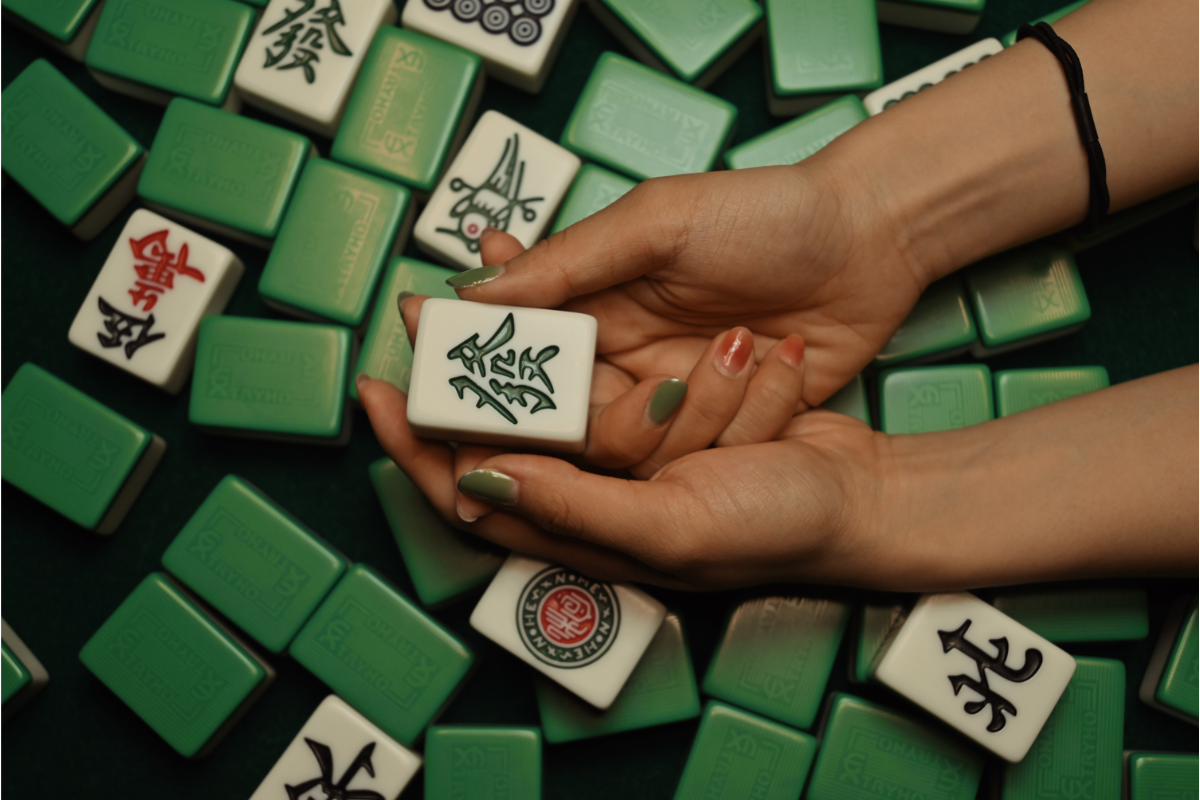“Who wants to learn mah jongg?” my friend Jess messaged our Facebook moms’ group. I had a 3-month-old with colic, a full-time psychology practice, a home renovation that had gone awry and a 9-year-old who felt abandoned by the recent arrival of her sister. My meticulously organized life lay around me like the pile of unwashed clothes I’d thrown in my closet. I needed an escape.
“I’m in,” I messaged back. Although I grew up knowing that my Jewish grandmother had occasionally played the game, I didn’t know what to expect.
It did not take long after the Facebook exchange before a group of us began meeting every Monday morning for mah jongg. I felt drawn to the satisfying click of the tiles — six bam, two krak, five dot, red dragon — and the feeling of my fingertips on their cool, carved edges, smooth as beach glass.
For the first few years, I played mah jongg the same way I parented: cautiously, safely, getting out ahead of danger before it became real. I assembled consecutive run hands from the more common numbered tiles, rather than from the special tiles such as dragons, winds and flowers. I grabbed the first discard that matched the initial tiles I was dealt and let that determine the hand I was going for. That way, the only real decision I had to make was the first one.
So it was in my role as a mom: the fewer risks the better. From the first moment Yael, my eldest, curled into my arms like a soft comma, I was determined not to disappoint her. I organized my work schedule around her and volunteered for every class trip. Then, when I became a single parent, my protective instincts sharpened further. Just beneath my soft exterior, I was a ferocious grizzly ready to pounce on any danger I saw coming. When Yael’s teacher made an antisemitic comment, I was in the principal’s office the next day. When she was sick, I called in every favor from my years working at a hospital to make sure she was taken care of.
But when my younger daughter Dahlia was diagnosed with autism when she was 4 years old, all of that went out the window. At first, I resorted to my familiar playbook, trying to protect Dahlia by limiting her exposure to things that might upset or bewilder her. But over time, Dahlia has shown me how wrong I was. Far from retreating from a world that often doesn’t make sense to her, she throws herself into it. Every new conundrum is a chance to question and explore. “Why?” she asks me constantly. “Why can’t we talk to dead people?” “Why do we take photographs?” “Why do we learn in classrooms?” Why indeed?
It’s not that Dahlia has no fear; to the contrary. The first time she went horseback riding, she looked as if she’d been put on a T-Rex. But she persevered, and now loves it. Learning to see the world through Dahlia’s gaze has revealed to me how limited my own way of seeing was. Though I was a reluctant student, she has taught me that my most important task as a mother isn’t to hedge against uncertainty; it is to embrace it. As a result, my own life is no longer so carefully ordered, and thank God for that.
I’m a better person for loving Dahlia, and I’m a better mah jongg player, too. I no longer confine my play to the safe but unimaginative consecutive run section of my tiles. I used to only put at most two tiles in the mush — the non-compulsory exchange of tiles that might or might not improve one’s hand. Now I often discard the full allotment of five, essentially starting over. Whereas I used to stay away from the high risk, high reward concealed hands, now I choose them.
The most striking difference in my play, though, is that I no longer pick a hand early in the game. I straddle between at least three different hands until the very last minute. This strategy requires utter absorption as I must scan the board for each tile thrown and switch gears suddenly if too many tiles for any one hand are discarded. Freed from my conservative play, I have found the game to be much more enjoyable. Risk demands focus, concentration, but also abandonment. No longer does my mind wander during our sessions to all the annoying obligations of the day or week ahead: the dry-cleaning I need to pick up; the dinner I need to cook; the math project I need to help on; the patients I need to reschedule. Those things will come whether I ruminate on them or not.
When I started playing mah jongg, I thought it would be an escape. And it has been that, but it’s been much more: a kind of mirror on my life. Immersing myself every Monday morning in the wild and delightful vicissitudes of the game has reminded me of the terror and joys of parenting. I know now that I can’t protect my children from all the difficult and scary things in the world: from other people’s judgments or preconceptions about the right way to act or talk or think. That fact still pains me. But I also know now what a wonderful thing it is to feel poised in possibility. Like my intrepid, lovely daughters, I can face the unknown future, and boldly play my hand.








